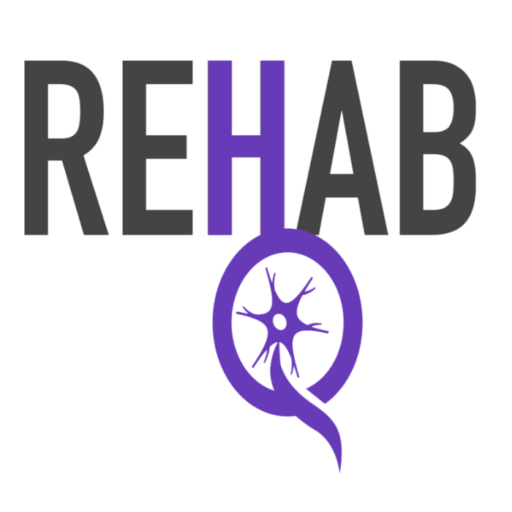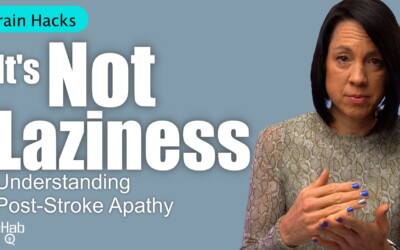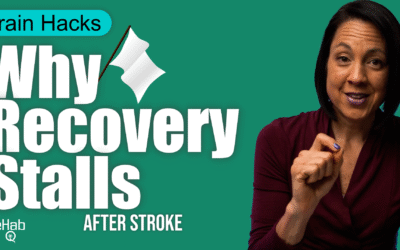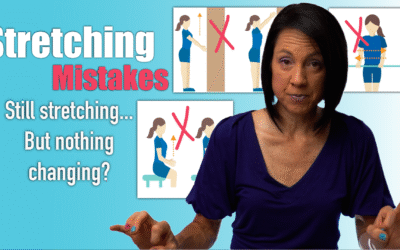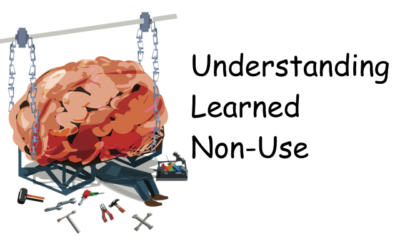Stroke Recovery for the Brain: Boost Memory, Focus, and Thinking Skills
We often talk about walking again. Moving your arm again. Lifting your leg. And yes—those goals are important.
But here’s what we don’t talk about enough:
That moment you walk into a room and forget why you’re there. Forgetting an appointment or the name of someone whom you have met on several occasions.
The frustration of not being able to find the word that’s right there on the tip of your tongue.
Or how just following a conversation or keeping your attention on a simple task feels no different than finding your way out of a corn maze.
Sound familiar?
That’s the cognitive side of stroke recovery. And it’s just as real—and arguably more critical—as the physical part.
Because it’s hard to rewire a movement if your brain can’t even stay with the task long enough to learn it.
Your Brain is Still Capable
Even if it doesn’t feel like it.
Even if you’ve been told “that part of the brain is gone.”
Here’s the truth: your brain can rewire. It just needs the right input. The right stimulation. And yes—the right kind of practice.
Think of your brain like a muscle. If you don’t use it, it weakens. If you challenge it—the right way—it grows.
So today, let’s shift the spotlight from legs and arms… to memory, focus, and problem-solving.
Because rebuilding how you think, remember, and communicate?
That can change everything.
Try These 3 Simple Brain Workouts
You don’t need an app. Or fancy software. Or hours of time.
You just need to start.
Memory Recall Practice:
Pick a category (foods, animals, cities) and try to name as many as you can in one minute. Write them down if you can. Do it again tomorrow. Try to beat your score.
Distraction Resistance Drill:
Try reading a short article or paragraph—then retell what you read. If you can do this in complete silence (no “distraction”), try it with the TV on in the background. This builds focused attention in a noisy world.
Mental Sequencing Game:
Say the months of the year backward. Or alphabet letters in reverse. Or try reciting your phone number backward. It’s harder than it sounds—and that’s the point.
What’s the Goal?
Not perfection.
Progress.
If you feel mentally tired after doing just a few minutes—that’s not failure. That’s your brain working.
And just like lifting a weight or standing longer than you could last week… that mental fatigue is a good sign.
So if no one has told you this lately:
Your thinking, your words, your attention—they can get better.
Even years after a stroke.
Even when it feels like it’s not working.
Even when your body is tired and your spirit feels discouraged.
This part of recovery matters.
So let’s stop ignoring it.
Let’s start training it.
One small brain rep at a time.
Stroke Recovery and Apathy: What It Is and How to Overcome It
What’s Really Going On When Motivation Disappears After Stroke Recovering from a stroke is a journey that requires strength, patience, and persistence. But for many stroke survivors, the hardest part isn’t weakness, fatigue, or memory loss. It’s something less visible...
Improve Focus and Attention After Stroke
Stroke Recovery: How to Regain Focus and Attention Faster https://youtu.be/ul0wUgXravo When most people think about recovery after a neurologic injury like a stroke, brain injury, or MS, they often focus on the physical side. Strength. Repetitions. Muscle activation....
Stroke Recovery Plateau: What to Do
Why Stroke Recovery Stalls and How to Push Through Recovery may feel stuck, but progress is still possible. Here’s how to keep improving after a plateau. https://youtu.be/w6xZZpx7tDY Recovering from a stroke or neurologic injury can feel overwhelming. Walking,...
Stretching Spastic Muscles: 8 Mistakes to Avoid
8 Common Stretching Mistakes in Stroke Recovery Why Your Stretching Might Be Making Spasticity Worse https://youtu.be/bBsM34HROYY If you’re dealing with spasticity after a neurologic injury, stretching might not be as straightforward as it seems. In fact, doing it the...
When Your Brain Forgets Half the World: Understanding Hemispatial Neglect
When Your Brain Forgets Half the World A practical guide to hemispatial neglect after stroke Let’s talk about something that doesn’t get nearly enough attention—literally. It’s called hemispatial neglect.And if you’re dealing with it, you already know how frustrating,...
3 Big Balance Mistakes After Stroke—and How to Fix Them
Have you ever felt like your balance is fine at home… but the moment you step outside, it’s a totally different story? You’re not alone—and there’s a good reason for that. I talk to a lot of people who say, “I feel pretty confident walking around my house, but the...
Neuroplasticity and Recovery: How Life’s Loops Shape Growth and Transformation
"The adventure of life is to learn. The purpose of life is to grow. The nature of life is to change." — Unknown “Why run that far when you have a perfectly reliable car?” Back in my marathon days, this rhetorical question was something I heard more times than I can...
The Secret to Stroke Recovery Success
"The secret to winning is learning how to lose. That is, learning to bounce back from failure and disappointment—undeterred—and continuing to steadily march toward your potential. Your response to failure determines your capacity for success." -James Clear, author of...
Why Your Hand Still Won’t Open After Stroke | 3 Mistakes to Fix
Why Forcing It Doesn't Work How to Stop Reinforcing the Wrong Patterns and Start Rewiring Your Brain for Real Recovery https://youtu.be/fDIgGLM8Kj0If you’ve had a stroke (or other neurologic injury), and your hand feels like it’s stuck in a fist or your arm just hangs...
Understanding Learned Non-Use
https://youtu.be/iLo0j4aC44I Do you feel like you have plateaued? What I mean is, has your arm and leg movement recovery slowed to a crawl? Or maybe progress has stopped altogether? The common belief is that someone loses the ability to move because that part...
